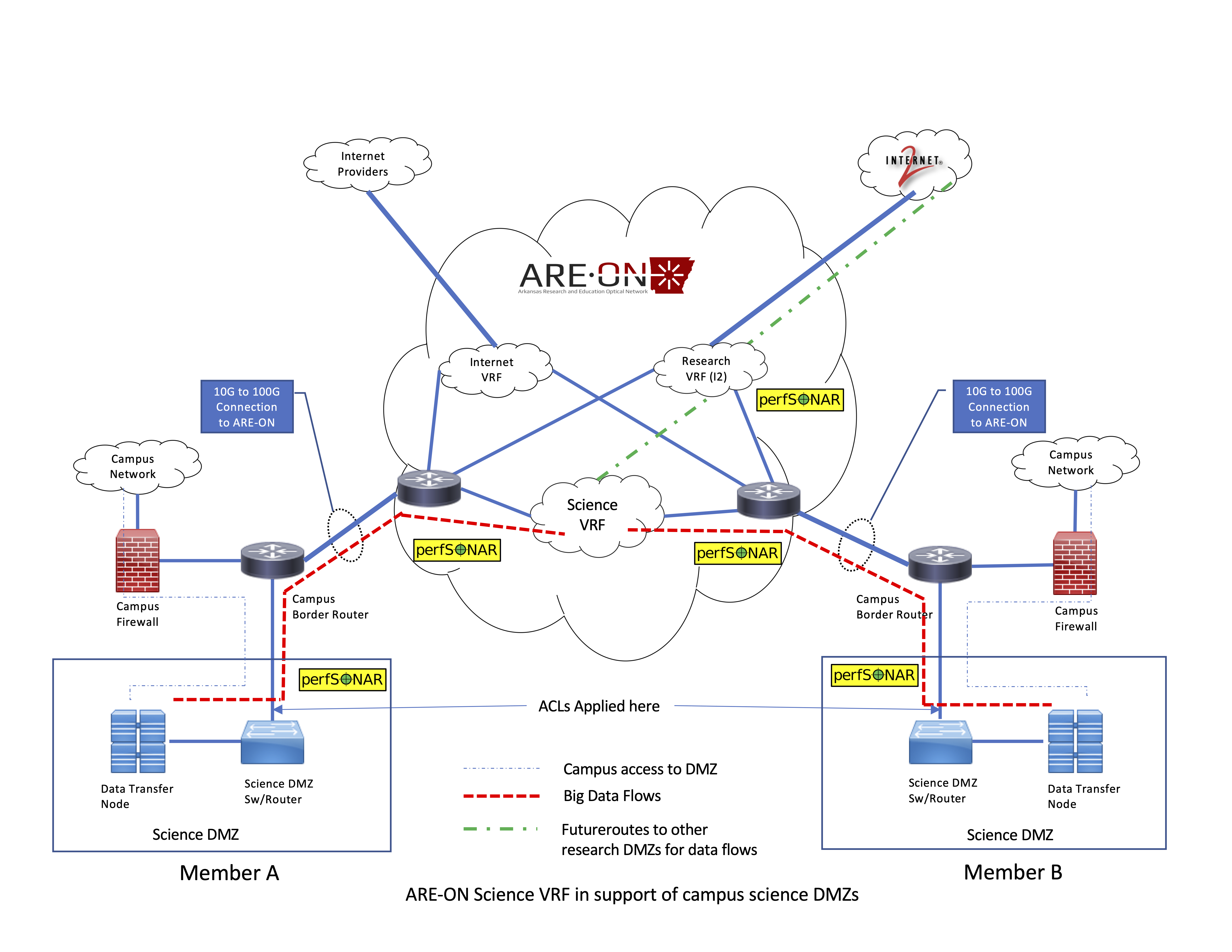Arkansas universities are building greater research collaboration through the Arkansas Research Platform (ARP) implementation. ARP is a private research cloud that allows researchers in Arkansas to access a set of shared cyberinfrastructure resources to improve data science collaboration and output. ARE-ON, the research and education network serving the State of Arkansas, is key to this frictionless collaboration between connected institutions.
This concept was launched out of the Data Analytics That Are Robust and Trusted (DART) award from the National Science Foundation (NSF) in 2020, which sought to build a hub of data transfer infrastructure between eight in-state schools. The Arkansas Research Platform concept was developed to address that vision.
“Each higher-ed school in Arkansas has a growing demand for federated access to high-speed resources, managed services and technical training,” said Don DuRousseau, director of research technology at the University of Arkansas. “Most schools in Arkansas lack the connectivity, budget, and staffing to fully utilize advanced HPC and HTC capabilities, and each school is unique in its technical capacity and networking expertise. The Arkansas Research Platform serves this demand by coordinating the operation of the state’s research cyberinfrastructure as a shared resource and providing easy access for researchers to reach advanced computing centers, scientific instruments, cyber ranges, and other research environments spread across the state.”
The ARP extends the concept of the typical Science DMZ beyond the borders of a single institution, expanding into a research cloud of connected peers along the ARE-ON backbone network. ARE-ON has created a Science Virtual Routing Facility (VRF) network to provide a private, secure routing domain to connect members’ Science DMZs. The campus border router advertises only the routes to their Science DMZ with the ARE-ON Science VRF to isolate the network of Science DMZs at each institution. Once a connection is established across the ARE-ON Science VRF, data will flow from a data transfer node (DTN) on each campus to the destination member’s DMZ and allow remote access to a high-performance computing system to a participating researcher. Security is provided through configuring trusted routes and access lists across nodes participating in the Science VRF.
The ARP will provide a scaled ecosystem of resources, previously unavailable to many institutions, to improve the research output of the state. To begin, the University of Arkansas at Fayetteville and the University of Arkansas for Medical Sciences will utilize the ARP to build integrated high-performance computing resources, allowing users to use the resources at either institution to further their research. More schools will be added with this initial framework through an ongoing planning effort funded by NSF, assessing barriers at an expanded cohort of schools in Arkansas. A later step in developing the ARP will be the acceptance of regional and national network peers by allowing routes from the Internet2 research and education route table to be included in the Science VRF, facilitating data transfer to institutions outside of Arkansas.
ARE-ON is a not-for-profit organization in Arkansas passionate about providing members with technical expertise, cost-effective network services, and personal connections with a high level
of customer service. We create a collaborative community for local anchor institutions to leverage technology resources and knowledge to achieve their goals.

